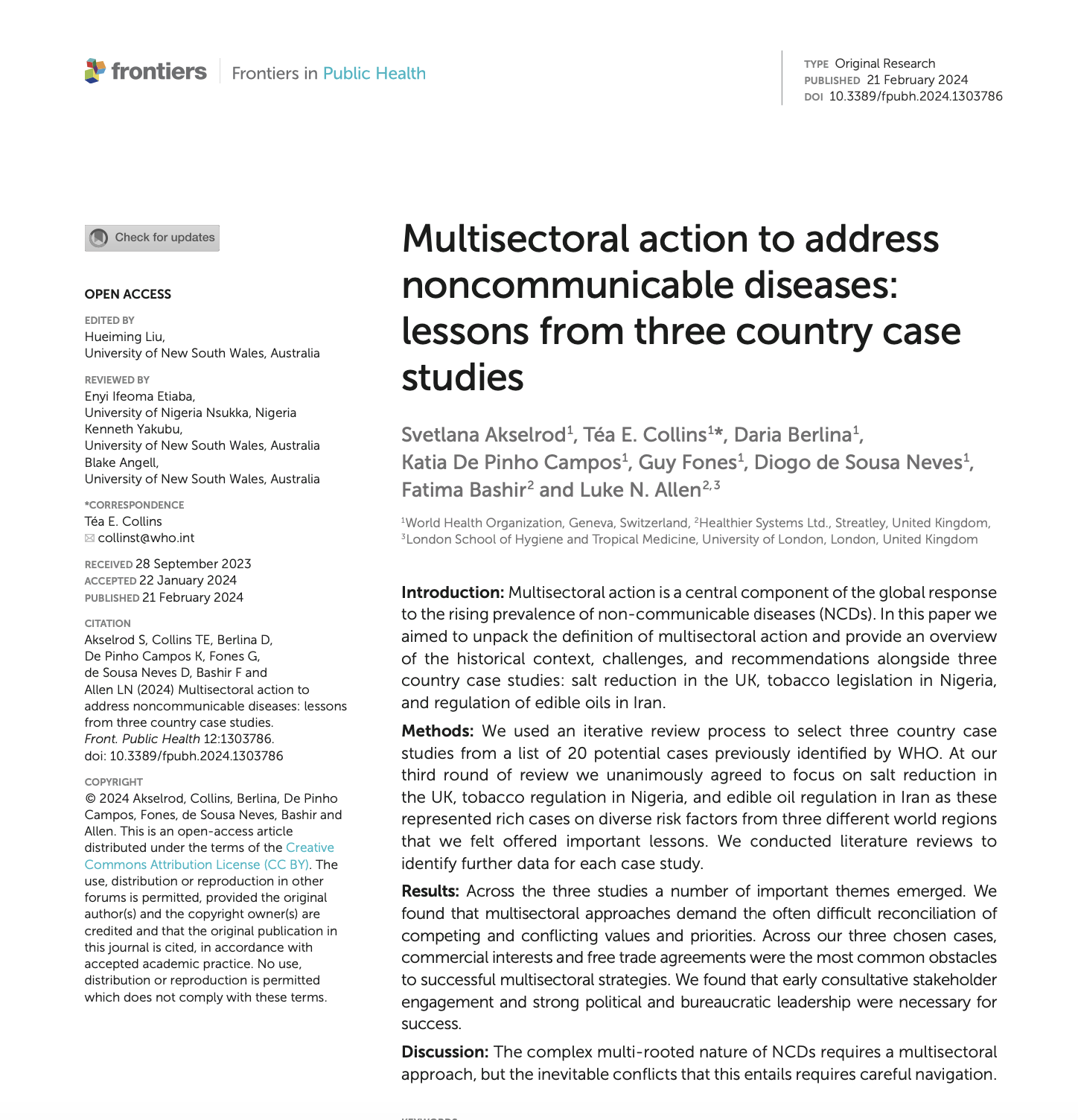Global Allergy & Airways Patient Platform
Bronchiectasis Educational Flyers
Guide
05 Feb 2026
21 Feb 2024

Multisectoral action is a central component of the global response to the rising prevalence of non-communicable diseases (NCDs). In this paper we aimed to unpack the definition of multisectoral action and provide an overview of the historical context, challenges, and recommendations alongside three country case studies: salt reduction in the UK, tobacco legislation in Nigeria, and regulation of edible oils in Iran.
We used an iterative review process to select three country case studies from a list of 20 potential cases previously identified by WHO. At our third round of review we unanimously agreed to focus on salt reduction in the UK, tobacco regulation in Nigeria, and edible oil regulation in Iran as these represented rich cases on diverse risk factors from three different world regions that we felt offered important lessons. We conducted literature reviews to identify further data for each case study.
Across the three studies a number of important themes emerged. We found that multisectoral approaches demand the often difficult reconciliation of competing and conflicting values and priorities. Across our three chosen cases, commercial interests and free trade agreements were the most common obstacles to successful multisectoral strategies. We found that early consultative stakeholder engagement and strong political and bureaucratic leadership were necessary for success.
The complex multi-rooted nature of NCDs requires a multisectoral approach, but the inevitable conflicts that this entails requires careful navigation.